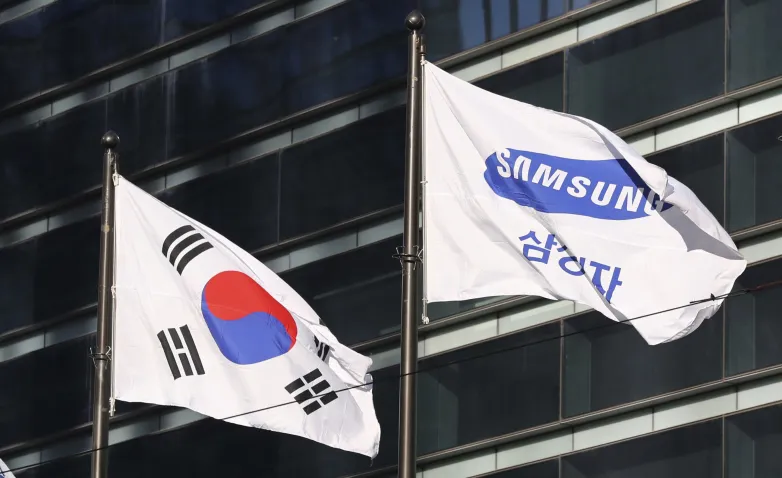Samsung sets objective to obtain 100% clean power by 2050
- Samsung Electronics is shifting far from fossil fuels and aiming to totally power its international operations with clean electrical power by 2050, a difficult goal that professionals claim could be hampered by South Korea's small climate adjustment commitments.

South Korea-based Samsung is a leading producer of computer memory chips and also smart devices and the second biggest energy customer behind Walmart amongst numerous worldwide companies that have actually joined the "RE100" project to obtain 100% of electrical power from renewable sources like wind or solar energy.
In introducing its target Thursday the company stated it intends to achieve net zero carbon emissions throughout its smart phone, television and also customer electronics divisions by 2030, and also throughout all global operations consisting of semiconductors by 2050.
It intends to spend 7 trillion won ($ 5 billion) with 2030 on projects focused on reducing emissions from procedure gases, managing as well as recycling digital waste, saving water as well as decreasing toxins. It plans to create new modern technologies to lower power usage in customer electronics tools and also data facilities, which would require much more efficient memory chips. It additionally will certainly set long-lasting objectives to reduce emissions in supply chains as well as logistics.
" Samsung is replying to the dangers of climate modification with a thorough plan that consists of reducing emissions, new sustainability methods as well as the development of innovative technologies and products that are better for our planet," Jong-Hee Han, the company's CEO, stated in an emailed declaration.
Samsung's plan drew praise from several of its investors, including Dutch pension fund manager APG, which claimed the company can potentially make a "considerable payment" in cleaning up South Korea's power market, considering its effect and also impact on the national economic situation.
Sam Kimmins, supervisor of power and head of RE100 at the London-based Climate Group, which leads the clean electricity effort, stated Samsung's commitment would send a message to others in the market that "it is possible, and also critical, to switch over to 100% renewable electricity."
APG shared worry, however, that Samsung's announcement comes with a time when South Korea has been dialing back on its climate change goals.
The traditional government of President Yoon Suk Yeol, that took workplace in May, has actually concentrated much of its energy policy on promoting nuclear-generated power. Desperate to enhance a weak economic situation, Yoon's government has actually also shown reluctance to sharply lower the country's dependancy on coal and also gas, which produce concerning 65% of South Korea's power.
South Korea obtained 7.5% of its power from renewable sources in 2021, substantially lower than the 30% average amongst rich nations making up the Organization for Economic Cooperation as well as Development. Yoon's federal government lately changed the nation's renewable energy target to 21% of the total power mix by 2030, softening the 30% target announced by his liberal precursor, Moon Jae-in.
Samsung acknowledged it would have a more difficult time converting to renewable electrical energy resources in the house than at its foreign procedures, where it aims to get to 100% clean power by 2027. It stated renewable energy products in South Korea "have started to expand however remain restricted," while its electricity needs remain to climb as it improves manufacturing at its residential semiconductor lines to fulfill global needs.
"As a lasting financier in Korea, we are worried about exactly how the federal government intends to reconcile the sector's determined requirement for clean electrical power to stay appropriate in the future," Yoo-Kyung Park, APG's Asia Pacific head of liable financial investment and governance, stated in a declaration.
Samsung, South Korea's largest company, had encountered growing pressure to do more to reduce its carbon emissions as it hung back a few of its peers in climate commitments. Those companies include Apple, a major purchaser of Samsung's chips, which joined RE100 in 2016 and prepares to be carbon neutral across its whole company as well as manufacturing supply chains by 2030, putting the pressure on its distributors to meet those demands.
Samsung is the crown jewel of an export-reliant economic situation driven by manufacturing of semiconductors, cars and trucks, present panels, mobile phones and also ships, industries that have a tendency to have high energy intake.
Samsung made use of 25.8 terawatt hrs of electricity for its operations last year, which was almost twice the quantity consumed by all homes in the South Korean funding of Seoul as well as more than other global modern technology giants like Google, Apple, Meta, Intel, and Taiwan Semiconductor Manufacturing Company.
Samsung's welcome of clean electrical power can have significant supply chain effects, pressing various other companies to boost their renewable energy materials, claimed Ousam Jin from the Seoul-based Corporate Renewable Energy Foundation.
"A lot of meaningfully, Samsung's RE100 commitment sends a solid signal to the renewable energy market and also policymakers to enhance the supply of renewable energy considering the company's massive electricity usage," Jin claimed.
Also read

